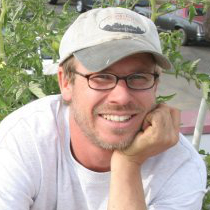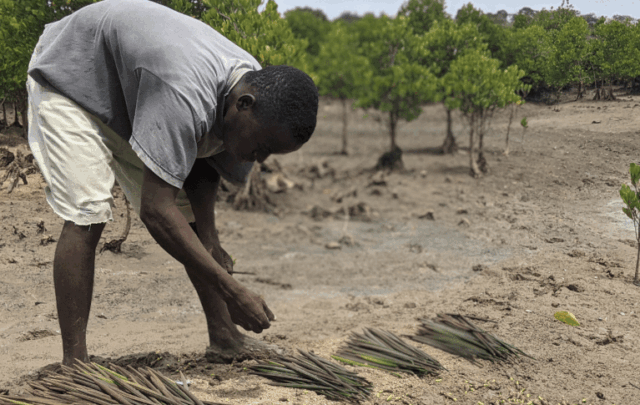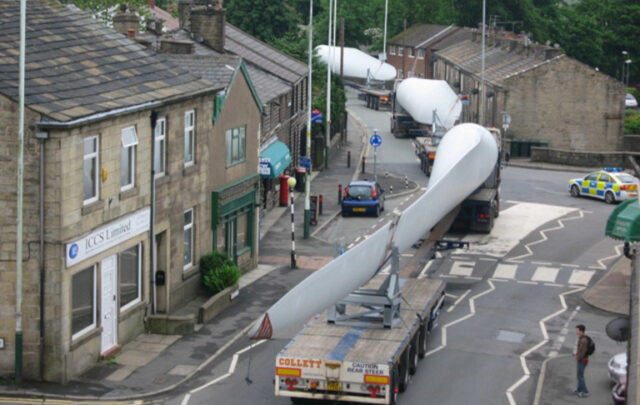

NOTE: Images in this archived article have been removed.
On a hot day in late June, about ten of us,[i] and some of our children, gathered at the water’s edge of Lake Michigan. We had found a secluded spot, with a dry sandbar sheltered by willows reaching towards the water. Although a windless day, it was still cooler this close to the lake, and an occasional breath from beyond blew a wisp of colder lake air over us. The waves lapped gently in and out, as if only to remind us of their presence despite the stillness of the day, a stillness that had overtaken us as well. All of us had been heavily involved in Transition Milwaukee in its earlier days of inspiration and action, but we had drifted both together and apart, and we had scarcely been together as a group in years. The children waded in the water and sat on a fallen branch giggling softly, while the adults began to chat and then share our deepest hopes in careful and muted tones. We listened intently, talked slowly, holding moments of silence longer than is customary in casual conversation.
This was the first meeting of what we have been calling “Earth Church.” We were all there because of our past connection through Transition, where work, struggle, joy, and disappointment, had weaved long but elastic lines of trust. Now, however we were looking and making something new and, it turns out, something beautiful. Some of us still followed Transition, while others had set other courses. What had endured beyond the strains of time, was the part of the Transition Movement that can, I think, only be called spiritual, whatever that in fact means.
None of us had given up on the hopes of Transition, or at least the values that gave substance to that hope; but our early expectations for some sort of social salvation–a revolution, complete with a widespread energy descent and community sustainability–were no longer holding us together. These hopes had been dashed, at least cooled, by the real inching towards Bethlehem we should have expected. I had watched with interest the way some of the group had found solace and rejuvenation with yoga, healing-circles and support groups, or intentional communities, while others had pursued professional training in the healing arts, whether massage or acupuncture, or even song and dance. I had been doing my best to wed my own efforts of inner-change to a writing career. The core values of Transition had, I might say, been borne by wild and abundant tendrils towards the outskirts of the idealized Transition Town. Or like seeds scattering in the breeze, possibility had been sown in soils of self-care, mindfulness, and the exercise of both personal and cultural healing—or in my case into deeper philosophical reflection on modernity, the self, and cultural change.
I’ll say more in another piece about what brought me to this place where I wanted nothing more than quiet communing by the lake. But I’d like to risk capturing the beliefs and hopes we do all share, without forgetting the hazards of appearing to speak for others. The experience of building Transition Milwaukee had excited in us a hunger for community. We don’t reflect too much on our laurels, but we had accomplished some awesome feats before our energy began to diffuse itself. In our work–the first Victory Garden Blitz in Milwaukee for instance–we had formed our sense of who we were, what mattered, and what we could do, though perhaps in part as a group whose puzzle pieces might still fit together. But now instead of new plans or events, we talked of the human need for ritual, ceremony, even sacrament.
Other religious traditions, which some of us still embrace, offer people things that people need, revealed perhaps in the endurance of religion, as well as its handmaidens of faith, trust, and hope. Being human, even under the best circumstances, is difficult work, if for no other reason than our foreknowledge of our own deaths and all the complications this fact rains upon our hopes and beliefs, and even every moment of being. Following the great Kenneth Burke, who said this about poetry, perhaps religions provided equipment for living (and for dying) that are often absent in activist cultures where progress and results remain the overriding goal. We, however, had grown more interested in embracing loss, sorrow, and grief, in finding acceptance and forgiveness, in holding a gentle regard for all of Earth’s children, including ourselves. Yes, the spiritual side has its political import, but we are not explicitly, or rather strategically, concerned with it. It was not to be our master, though we may still give Caesar what he has coming. Our intent with Earth Church, anyways, is to hold something much more like a religious ceremony than a Transition meeting. There is no planning, logistics, or committees. Our events are themselves. There is no whiteboard.
To those deeply embedded in spirituality or are used to “being religious,” all this may all seem like the gropings of children towards the obvious—towards what some church, Mosque, Synagogue or Temple-goers live and breathe every day. “Look, look,” say the children. “look what we found–love and community and support. Let us sing and have ceremony!” But from the standpoint of most of secular liberal activist society, Earth Church is pretty unique, like learning to walk or see or smell for the first time again and against a backdrop normally shaded to highlight operations, initiatives, and campaigns.
It is perhaps unfair to us for me to depict our congregation according to this metaphor of us as spiritual children. As a group we are well-enough versed and informed in the ways of formal religions. We are in fact borrowing heavily from our religious experiences, as we hope to construct a foundation for an inner-home built explicitly around care for each other, erected on love and support without judgment—a place where we would ask each other, “how are you?” and truly accept and expect the long and truthful answer. We were looking for a place where we could be vulnerable, where cynics can leave irony at the door without feeling naked and ashamed, where we could sing and dance and cry together. And grieve our own sorrows, and the sorrows of the world. And celebrate our hopes. And express the joy of living when we could.
This may sound hyperbolic, like a good poetic line. Or maybe it sounds sappy. Perhaps it makes you cringe as I once would have as an on-fire Transition activist ready only to shoot-off a barrage of critiques of consumer capitalism. It is none of those things for us, nor was it from that first moment when we sat in a circle by the lake and sang together, drawing close enough to each other to feel the vibrations of each other’s voices upon our chests. Since this time, we have held a few more ceremonies, including a lovely meditation based on renewing our senses, as well as a profound and moving grief circle. Many of us also engage in Ecstatic Dancing, and we are likely to include elements of full body expression into our small and slowly growing repertoire of ceremony.
Even though in the first baby-steps of Earth Church, there is a respect and reiteration of the many and powerful churches that worship sky-gods, or the less prominent ones that revive ancient earth-gods, none of us have been fully satisfied with our previous religious experiences. This discontent, if I may call it that, is for some only slight, while for others it is nearly absolute. This, I should say, includes Unitarianism, which we are not simply re-creating with a different name. We may, it turns out, be far too reverent and faithful for Unitarianism, though that is the topic for another reflection. For there is, somewhere within the invisible vines stringing us into one, a main focus for our sacraments and rituals. We are not just worshipping for worship’s sake or making ceremony because we believe people need it. We actually have something drawing us to worship, and it reverts back to our earlier Transition bonding. At some level (yet to be determined), we want to worship the earth and its natural systems, learn from them, follow them, embed them into our spiritual practices, daily lives, and our efforts of healing. We began our first meeting with a reading from Wendell Berry, where he praises the soil as the source and destination of all. Some of us may believe in a supernatural power, but here we are developing a sort of natural supernaturalism which makes the soil holy, sacred, and divine.
This of course is to admit that our ideas are not all self-invented. We all bring different source, experiences, and traditions to the circle. Wendell Berry and Thoreau are my own patron saints; people like Jim Merkel an exemplary friar. But unlike most social movements, I will venture to say with some risk, we have a faith–a concept I will discuss more at a later date. Unlike other religions or churches, our faith is directed toward the sacred, healing, all-giving, yet fragile and suffering Earth. It is to the Earth and its creatures to whom we are responsible and to whom we are called.
This, of course, is my own interpretation of our common bonds. I am putting what I have heard and felt into my own language even as I try to borrow heavily on the words of others in the group. I write this with their permission but also hope others will describe our struggles and successes in their own tongue. But it is safe to say that we are as a group approaching this venture (which no longer feels like a venture, but already a spiritual home) slowly, and with caution. I think we agree that it should be allowed to evolve, and evolve at an unforced pace. It remains to be seen whether it grows, and what further songs and dances we find and invent to heal ourselves, praise the Earth, and spread joy to the ends of our reach.
[i] Thank you all for doing this together and for supporting my compulsion to write about it. Thanks to Zahner for editing suggestions.























